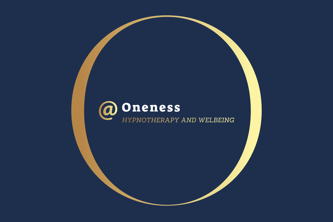
Individual therapy
Therapy helps you to learn about yourself. We work through behavioural, communicational, thought and relational patterns. Therapy is useful when you need clarity on your values and overall direction in life, but sessions can also be used as a safe place to de-stress and work through trauma and other complex, unresolved issues.
Since every person is different, we focus on tailoring our individual therapy to suit your needs and requirements. The role of the therapist is to act as a non-authoritarian, empathetic guide.
Individual therapy sessions offer you a safe place to discuss your issues, from present issues to things from your past, or both. The first session will be used to get a clear idea of your current needs.
What is it good for?
Anxiety
Anxiety disorder manifests in feelings of fear, dread, and uneasiness, accompanied by sweatiness, restlessness, tension, and rapid heartbeat.
While anxiety is a normal reaction to stress, people who suffer from anxiety disorder may find the physical and mental symptoms overwhelming to the extent that they can't manage their life day-to-day.
When should I call?
● Your anxiety affects your daily life.
● Your health is suffering from repeat anxiety attacks.
● You're unable to talk to your loved ones about your anxiety.
● You want to understand what causes your anxiety.
● You want to learn how to control your anxiety better.

Group therapy
Group therapy helps individuals work through and address their problems by interacting with a group of people with similar struggles.
Group therapy offers a safe and confidential setting for sharing personal feelings, experiences, thoughts, and issues while making it possible for each individual to receive feedback and support from others. The role of the therapist during group therapy lessons focuses on facilitating the conversation through various therapeutic approaches.
Group therapy can be used to offer educational lectures or workshops on different coping mechanisms. Most often group therapy sessions are 60-120 minutes and consist of 6-12 members and one or two therapists. Depending on the needs of the individuals, groups may meet weekly, bi-weekly or once a month.
What is it good for?
Cognitive-behavioral groups
These groups focus on addressing issues like anxiety, stress management, and trauma, among others, through various cognitive behavioral therapy methods. The aim of these groups is to rewire the way you approach different feelings.
CBT groups are very popular and proven successful in treatment of eating disorders, addiction problems, and other disorders.
Interpersonal groups
These groups focus on developing, addressing, and correcting different interpersonal behavioral patterns that can lead to conflict and distress in everyday life.
We use various communicational and behavioral approaches in these groups, depending on the needs of the participants.

Couples Therapy
Relationship therapy doesn't always necessarily mean there's an ongoing crisis taking place between two people. In fact, many couples opt for counseling in order to meet each other in a safe, non-judgemental space as equals and strengthen their relationship and friendship overall.
In relationship therapy, the focus is on creating a safe environment where everyone has the right to openly communicate and share their feelings without the fear of being attacked or judged. Therapy can last anywhere from a few weeks to years, depending on the situation of the couple.
What is it good for?
Roles in the relationship
Sometimes the roles in the relationship can be unequally distributed, or even realized in the first place, leading to built-up tension and unhappiness.
In couple therapy, we work to understand how and why both parties view the different roles, and how it affects the relationship overall.
Beliefs and values
Frequently, the beliefs and values people have stem from their childhood and past experiences, and when they don't align within the relationship, miscommunication can happen.
Together with a therapist, couples can work towards gaining a clear perspective into each other's beliefs and values.

Family Therapy
Like couples therapy, family therapy differs from individual therapy in that it focuses on the family unit rather than just one person.
Therapy is often driven by the family to resolve conflict or misconduct that is occurring and provides a safe, non-judgemental space as equals and strengthen their relationship and friendship overall.
Family therapy can support conflicts between parents, children and siblings. Other reasons include;
Long-term illness
Marital problems
Disorderly parenting
Inability to express emotions
Coping with grief or loss
Mental health disorders
What is it good for?
Family interventions
When family therapy is initiated it will be because elements of the family's infrastructure have shifted, communication may have broken down, and family objectives can be quite different.
@Oneness will support the family accept the situation and adjust to new objectives
Goals
Explore the dynamics and interactions of the family and any noticeable deficiencies
Identify and organise the strengths within the family for overall support
Facilitate change in interactions and responsibilities, depending on the circumstances
Improve decision making and dependence in the family structure


ONLINE
Get help wherever you are
As well as face-to-face counseling, we offer online. Ask about our hybrid packages that include both in-person and online therapy.
Contact
pete@onenesshypnotherapy.co.uk
+44 (0) 7568182829



